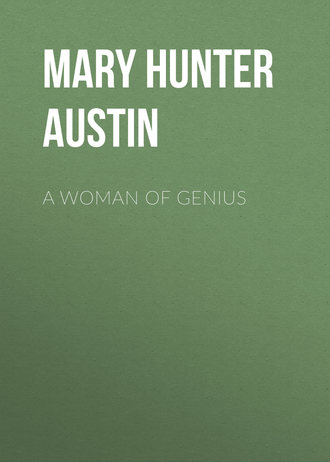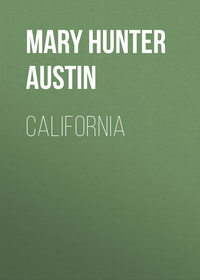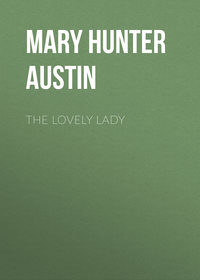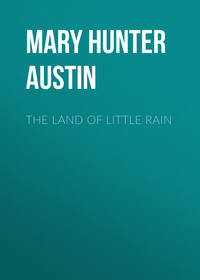 полная версия
полная версияA Woman of Genius
"I thought you'd want to see him immediately," the attorney interposed to my arresting gesture. "You see he was taken at his partner's house." He seemed to avoid some unpleasant implication by not mentioning Rathbone's name.
I scarcely remember what other particulars he gave me at the time; my next sharp impression was of my husband lying white and breathing heavily in the bed in the Rathbone's front room, the drapery of which had been torn hastily down to make room for him, regardless of the finished pieces of Miss Harvey's trousseau still crowding the chairs upon which they had been hastily thrust. Empty sleeves hung down and vaguely seemed to reach for what they could not clasp; strangely I was aware in them of an aching lack and loss which must have sprung in my bosom. I took my husband's hand and it dropped back from my clasp, waxlike and nerveless. I think I had been kneeling by the bed for some time, talk had been going on whisperingly around me; finally the light faded and I discovered that the doctor had gone. The beribboned bridal garments hung limply still on the chairs and mocked me with their empty arms. Presently I was aware that Miss Rathbone had come in with a lamp. She stood there on the other side of the bed and we looked at him and at one another.
"How long?" I asked her.
"Two or three days maybe, the doctor says."
"Will he know me again."
"The doctor says not."
"Oh, Tommy, Tommy!" I began to shake with suppressed sobbing. Miss Rathbone looked at me with cold resentment.
"You can cry as much as you like, it won't disturb him," she said.
She seemed to have taken the fact that she wasn't to cry herself, as final. In a few minutes old Rathbone shuffled in from the shop and stood peering at Tommy with his little red-lidded eyes, wiping them furtively. I believe the old man was fond of his partner and it was not strange to him that Tommy should be lying ill at his home. Miss Rathbone came and took him by the shoulders as one does to a grieving child and turned his face to her bosom. She was a head taller than he, and as she looked across him to me there was compulsion in her look and pleading.
"He is never to know," the look said, and I looked back, "Never."
It was then that I realized how genuine her affection was for the feeble, snuffling old man; she would suffer at being lessened in his eyes.
Some one came and took me away for a while, and by degrees I got to know the story. It had been the night before, just about the time I was taken with that strange impulse to return, that Tommy had shut up the store and gone over to the half-furnished room belonging to the Board of Trade, which had become a sort of club for the soberer men of the community. A great deal of talk went on there which gave them the agreeable impression of something being done, though there must have been much of it of the character of that which was going on in a group around Montague when Tommy came in at the door. He came in very quietly, blinded by the light, and they had their backs to him, shaking with the loose laughter which punctuates a ribald description. Then Montague's voice took it up again.
"Rathbone'll get him," he said. "She's got the goods. The other one has probably got somebody on the side; these actresses are all alike."
There was a word or two more to that before Tommy's fist in his jaw stopped him. Montague struck back, he was a heavier man than my husband, but in a minute the others had rushed in between them. They were drawn back and held; Tommy's nose bled profusely, he appeared dazed, and accepted Montague's forced apology without a word. The men were all scared and yet excited; some of them were ashamed of themselves. They suspected it was not the sort of thing that should go on at a Board of Trade, and agreed it ought to be kept out of the papers. Some one walked home with my husband, and on the way he was seized with a violent fit of vomiting.
"Who was it hit me?" he asked at the door, and seemed but vaguely to remember what it was about. The next morning he opened the store as usual and appeared quite himself to old Rathbone, who came shuffling and sidestepping in to his nest at the accustomed hour. About half-past ten the tailor was made aware by the rapping of a customer on the deserted counter, that Tommy had gone out without a word. He must have gone straight to Miss Rathbone; those who met him on the street recalled that his gait was unsteady. She must have been greatly concerned to have him there at that hour, for people were moving about the streets and customers beginning to come in, and in the presence of Tillie Hemingway he could offer her no adequate explanation.
She was desperately revolving the risk of taking him into the front room to have out of him what his distrait presence half declared, when he was taken with a momentary retching; she went into the next room to fetch him a glass of water and a moment after her back was turned she heard him pitch forward on the floor.
When Rathbone had sent for me by the wire that passed me on the way home, he sent also to Tommy's father, who got in before noon the next day. I remember him as a quizzical sort of man always with his hands in his pockets, and a bristling brown moustache cut off square with his upper lip, and a better understanding of the situation than he had any intention of admitting. I had by some unconscious means derived from him that though he was fond of Tommy, he never had much opinion of his capacity. I think now it must have been his presence there and his manner of being likely to do the most unexpected thing, that pulled those same live business men who had stood listening in loose-mouthed relish of Monty's ribaldry, out of the possibility of entertainment in the case that might be made out of his implication in my husband's death, to the consideration of the town's repute as a place where such things could not possibly happen. By the time Forester came on, a covert discretion had supplied the event with its sole consoling circumstance of secrecy. Not even my family got to know what led up to that blow which had precipitated an unsuspected weakness. It was quite in accordance with what they believed of the life I had chosen, that my husband's death in a brawl should be among its contingencies. Poor Tommy's end took on a tinge of theatricality.
It was toward the end of the second day that he began to respond to the stimulants the doctor had been pouring into him. He opened his eyes and looked at us, conscious, but out of all present time. Feebly his glance roved over the figures by the bed, and fell at last on me.
"Ollie," he whispered, "Ollie!" It was a name he had not called for a long time.
"Oh, my dear, my dear!" I took his hand again and felt a faint pressure. Miss Rathbone hardly dared to look at him with the others standing about. I whispered her name to him, and his partner's, but he did not so much as turn his eyes in their direction. I could see him studying me out of half-shut glances; there would be an appreciable interval before the sense of what he saw penetrated the dulled brain; I thought I knew the very moment when the significance of our standing all about his bed crying, took hold of him. All at once he spoke out clearly:
"Is my father here?" I fancied he must have hit on that question as a confirmation; but before there could be any talk between them he slid off again into the deeps of insensibility. At the end of half an hour or so he started up almost strongly.
"Ollie!" he demanded, "where is the baby?"
"Asleep," I told him.
"Then I will sleep too," and in a little while it was so.
The Odd Fellows took charge of my husband's funeral, his body was moved from the Rathbones', to their hall and did not go back again to the rooms over the store. Miss Rathbone made up my crape for me. I believe it gave her a little comfort to do so. Forester came and settled up my husband's affairs; he was rather inclined to resent what he felt was an effort of the Rathbones to claim a larger share in the business than the books showed, but he thought my indifference natural to my grief. He was shocked a little at my determination to go on with my engagement; we were not so poor he thought, that I could not afford a little retirement to my widowhood. But in that strange renewal of communion after death, I felt my husband nearer than before. He would go with me at last out of Higgleston. Strangely, I wanted to see Miss Rathbone, but she kept away from me. That was as it should have been in Higgleston. She had tried to get my husband, she had been, in a way, the death of him. It was hardly expected that I could bear the sight of her, though it would have been Christian to forgive her.
I did see her, however, the night before I went away. It was the dusk of the first of September. There was a moon coming up, large and dulled at the edges by the haze, and that strange earthy smell with the hint of decay in it, kept in by the banded mists that lay below the moon. The darkness crept close along the earth and spread upward like an exhalation into the sky where almost the full day halted. I had slipped out down a side street and across an open lot to the cemetery. I would have that hour with my dead free from observation.
I went between the white head stones and the flower borders. As I neared my husband's grave, something moved upon it. It arose out of the low mound as I approached; for one heart-riving second I stopped, speechless; it moved again and showed a woman.
"Miss Rathbone!" I called. "Henrietta!" I had not used her name before; I have just now remembered it.
"You might have left me this," she said. I saw that she had covered the mound with flowers, and I was glad I had not brought any.
"I am leaving," I answered. "I am going to-morrow … where my work is."
"Yes, you can go. But I have to stay … where my work is. I stay with him. You can go … you always wanted to go. And I, I have been talked about and I daren't even cry for him, not even at night, for my father hears me." She was crying now, deeply, bitterly. "You never cared for him," she insisted, "and now he knows it; he knows and has come back to me … to me."
"He comes back," I admitted. I was stricken suddenly with the futility of all human conviction. Moving about the house that day I had been conscious of him beside me then, and now, lying there beside my boy, touching him … mine … sealed to me in the certainty of death. And he had come back to her. I did not know even now what she and my husband had been to one another.
It swept over me somehow, drowningly, that this was the secret that the dead know, how to belong to all of us. They had no bond, how could they be unfaithful? For a moment I was caught up by the thought to nobility.
"Look here, Henrietta, if you feel that way, I'll leave it to you. I'll not come here any more." I did not know what else I could do about it.
"It's the least you can do." She was accepting it as her right. Any woman will understand how I wanted to lay my hand there, above his breast. She must really have believed I did not love him. I turned back across the borders.
"Good-bye, Henrietta." She made a nearly inarticulate sound. The last I saw of her in the dusk she was tucking her flowers into the fresh sod as one tucks a coverlet about a child. He had been, I suppose, both man and child to her.
BOOK III
CHAPTER I
I have to take up my story again about eighteen months later at the point of my going out to Suburbia to ask Gerald McDermott for a part in his new play, which was being rehearsed with Sarah in the rôle of Bettina. But before that there had been some rather mortifying experiences to teach me that though I was done with Higgleston, it was, to a certainty, not done with me. In any case I suppose the shock of my husband's death must have affected my work unfavourably, but the knowledge of his secret defection, and the excuse he found for it in what was best in me, made still corroding poison at the bottom of my wound.
What it all amounted to in my career was that the season which should have swept me back to Chicago in triumphant establishment of my gift, trickled out in faint praise and cold esteem. It was not that you could place your finger and say just there was the difficulty, but what came of it was another year on the road with Cline and Erskine, in stock. The Hardings, notwithstanding their disappointment in what they expected to make of me, managed to be kind.
"You'll pull up," they assured me; "it's because you are really an artist that you show what you've been through!" And they didn't know the half of what that was.
To Henry Mills my engagement with Cline and Erskine, was a step forward into that blazoned and banal professionalism which passes in America for dramatic success; but Sarah knew, and I think I knew myself, that the dance they led us in the spotlight of copious advertisement, was a dance of death to much that the plastic art should be. In this instance it was demonstrated even to the hopeful eye of Henry Mills, for the play chosen proved so little suited to the semi-rural, Middle West cities where we played it, that before the season was half over we were recalled, and, after an empty interval, finished out the engagement in one of those sensation mongering shows with which such combinations as Cline and Erskine clutch at the fleeing skirts of a public they never understand.
It was about a month after the closing of this engagement that I took Sarah's suggestion about applying to Gerald McDermott, but not before I had tried several other things. The truth was, as I knew very well when I faced it, that I had at the time nothing in me. To those who haven't it, a gift is a sort of extra possession, like an eye or a hand that can be commanded to its accustomed trick on any occasion; but to the owners of it it is a libation poured to the Unknown God. I had emptied my cup of its froth of youth, and as yet nothing had touched the profounder experience from which it should be fed and filled again, and I had no technique to supply the insufficiencies of my inspiration. Somewhere within me I felt the stuff of power, stiff and unworkable, needing the flux of passion and the shaping hand of skill.
Looking back now from the vantage of a tolerable success, if you were to ask me what, more than any other thing, prevents the fulness of our native art, I should say the blank public misapprehension of its processes. Turning every way to catch the favourable wind, what met me then, was the general conviction on the part of my friends that if you had talent you succeeded anyway, and if you weren't succeeding it was because you hadn't any talent. I suffered many humiliations before I learned how absolutely, by that same society that so liberally resents the implication of any separateness in art, the artist is thrust back upon himself. To do what seemed necessary for the development of my gift, to have a year or two to travel and study, to connote its powers with its limitations, required money; and though there in Chicago there was money for every sort of adventure that stirred the imagination of man, there was none for the particular sort of investment I represented. At least not at the price I was prepared to pay.
The half of what had been put into setting my brother on his feet would have served me, but I learned from Effie, that as much of my mother's capital as had been put into Forester's business, was not only impossible to be withdrawn from keeping him upright, but threatened not to hold him so for as long as it was necessary for mother to see in him the figure of a provider. This had been made plain at Christmas, when Effie had written me that a particular wheeled chair which my mother had set her heart upon because of a hope it held out of church-going, would be impossible unless I came forward handsomely. I did come forward on a scale commensurate with the Taylorville estimate of my salary, which was by no means comparable to its purchasing power in Chicago; and now I was beginning to realize that unless some one came forward for me, I stood to lose the Shining Destiny to which I felt myself appointed. I was slow in understanding that it was not to be looked for by any of the paths by which interest and succour are traditionally due. Not, for instance, from Pauline and Henry Mills.
I was seeing a great deal of them since I had come to Chicago, not only because of our earlier friendship, but because I found myself constantly thrown back on all that they stood for, by my distaste for much that I saw myself implicated in as a theatrical star who had not quite made good. I hated, quite unjustly, I believe, the players with whom for the time I was professionally classed; I loathed the shallow shop talk, the makeshift rooms we lived in, the outward smartness and the pinch of anxiety it covered. I was irritated by my external and circumstantial resemblance to much that I felt instinctively, kept them where they were, and vexed at some cheapness in myself which seemed to be revealed by the irritation. I had been thrown up out of the freemasonry of the preliminary struggle into a kind of backwater of established second-rateness, where there were also second-rate manners and morals and social perceptions. It was a great relief to get away from it to Pauline's home in Evanston, and the air it had of being somehow established at the pivot of existence. Pauline had two children by now, and a manner of being abundantly equal to the world in which she moved, a manner which I was only just realizing was largely owing to the figure of her husband's income. What Pauline furnished me at her home, over and above the real affection there was still between us, was a sort of continuous performance of the domestic virtues.
That faculty for knowing exactly what she wanted, which had led her to make the most of her housekeeping allowance in the days when making the most of it was her chief occupation, now that the centres of her activity had been shifted from the practical to the social and cultural, stood her in remarkable stead. I was so constantly amazed by the celerity and sureness with which she seized on just the attitude or opinion which suited best with the part she had cast herself for as the perfect wife and mother, that it was only when I discovered its complete want of relativity to the purpose of the play or to the rest of the company, that I was not taken in by it. I doubt now if Pauline ever had an idea or permitted herself a behaviour which was not conditioned by the pattern she had set for herself, which she intrigued both Henry and myself into believing was the only real and appreciable life.
At the time of which I write it was a great comfort to me to get away from my own dreary professionalism, to the nursery at Evanston, or to add my small flourish to the scene à faire of Henry's homecoming, made every day to seem the one event for which the household waited, from which, indeed, it took its excuse for being. For all of this was so well in line with what Henry, who with the amplification of his income had taken on a due rotundity of outline and a slight tendency to baldness, conceived as proper for a man's home to be, that he played up to it as much as was in him. He had still his air of knowingness about the theatre, and if there was at times in his manner a suggestion that he might have found it pleasanter to adjust his relation to me on the basis of what I was as an actress, if I had not been quite so much the friend, it was so far modified by his genuine admiration for his wife and his cession to her of every right of judgment in the home, that I was inclined to accept him at his own and Pauline's estimate as the model husband.
It was only a few days before my visit to Gerald McDermott, that I had undertaken to state to Pauline the nature of the help I required and my title to it. I had gone out to dinner and found her putting on a new gown, one of those garments admirably contrived between the smartness of evening dress and the intimacy of negligée, in which Evanston ladies of that period were wont to receive their lords.
"I'm needing something new myself," I said for a beginning, "and I'm divided between the certainty that if I don't get an engagement I can't afford it, and if I don't afford it I probably won't get an engagement." Pauline stopped in the process of hooking up, to take stock of me.
"You absurd child!" The note of amused admonition with which she ordinarily accepted my professional exigencies turned on the note of correction. "Don't you think you put too much stress on those things?"
"What things?" She had touched upon the spring of irritation.
"Clothes, you know, and appearances. Isn't it better just to do your work well and rest upon that?"
"Pauline, if you had ever looked for an engagement you would know that getting it is largely a matter of appearing equal to it, and clothes are the better part of appearing."
"But if you know that your work is good, what do you care what people think of you?" I dodged the moral situation about to be precipitated on me.
"It's about the only way you know it is good, knowing what people think of it."
"Now see here," Pauline protested, reinforced by the evident superiority of her viewpoint to mine, "you're getting all wrong; these things you are thinking of, they are not the real things; they don't count, not in the long run; it's only the spiritual things that really matter." She had put on all the plastic effect of nobility that was part of her stock in trade with Henry Mills. I thrust out against it sharply.
"Do you realize, Pauline, that if I don't get an engagement soon I shan't be able to pay my board?"
"Oh, you poor dear!" She came over and took my hand. I don't know why women like Pauline do that, but when they do it it is a sign they are not equal to the situation and are trying to fake it with you.
"I know it is hard" – she found the cooing note with facility – "but it will come right; it always does. I've always found that there is a way provided."
Something flashed into my mind that I had read in the newspapers recently about the corporations Henry worked for, and I wondered if Pauline had the least notion how the way, for her, was humanly provided, but the sound of Henry's latchkey put an end to the conversation, which I hadn't felt sufficiently encouraging to warrant my taking up again.
I went from Pauline's, at the very first opportunity, to Sarah Croyden, who was playing in Chicago, and doing her kindliest to blow the wind of hope into my sagging sails. I met Cecelia Brune there. It had been to me the witness of how far I had fallen from my mark, that I had been thrown with her again in my last engagement. Hers was the sort of talent that Cline and Erskine could play up to the limit of the inadmissible. There were not wanting intimations that Cecelia had moved her own limit a notch or two in that direction. She had taken a characteristic view of my reappearance in her neighbourhood.
"Got into the band-wagon, didn't you?" she remarked. "I saw Dean on the road last year and she said you was going in for high-brow stunts. Nothin' to it. You stay with Cline and Erskine; they get you on like anything." Her own notion of getting on was to figure as the sole female attraction in a song and dance skit in what she pronounced "Vawdville."
"It's the only place havin' a figgur does you any good!" That she did not recommend it for me must be taken for her estimate of mine. Nevertheless I was amused by her, and Sarah, I knew, was even a little fond. Sarah's affections were a sort of natural emanation from her, like the rays of a candle, and warmed all they lighted on. On this afternoon I found Cecelia drinking tea there and I wasn't able to conceal my professional depression from her sharp, shallow inquisitiveness. There were never two or three players got together, I believe, but the talk turned on the comparative ineffectiveness of Merit as against Pull in the struggle for success.
"There's no two ways about it," insisted Cecelia Brune; "you gotta get a hold of some rich guy and freeze to him." The extent to which Cecelia had blossomed out in ostrich tips and orchids that bright spring afternoon, might have suggested to an experienced eye, that the freezing process had already begun. I say might have, because Sarah and I found it difficult to disassociate her from the hard, grubby innocence in which our acquaintance had begun. Sarah, I know, believed in her and had her in often to informal occasions as a bulwark against what, with all her faith and pains, she didn't finally save her from.







